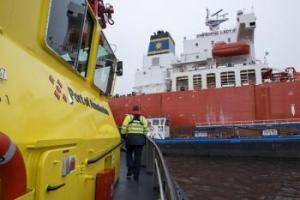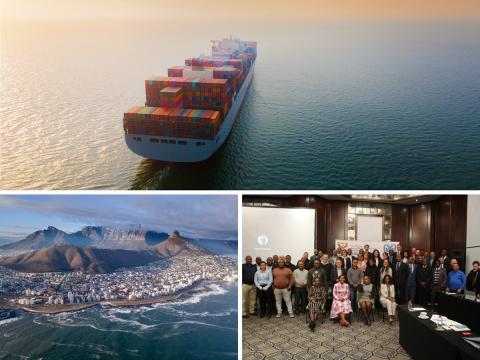Harbour Master
Harbour Masters
Worldwide there are approximately 3,000 merchant ports and the work of the Harbour Master can vary widely from country to country and from port to port even within the same country.


Stowaway cases are a human tragedy and hamper the economy of the country by increasing transport costs for import and exports flows.
South African government, port and shipping industry representatives attended a national seminar on the prevention of stowaways in Cape Town from 27 to 29 June, organized by the IMO in collaboration with the Department of Transport of South Africa.
Stowaway incidents cause considerable difficulties for shipmasters, shipping companies, ship owners and ship operators in disembarking stowaways from ships into the care of appropriate authorities.
Globally, the number of stowaway incidents in the year February 2020 to February 2021 was 364, with a total 1,050 stowaways, Costs were an estimated $8.9 million, according to the International Group of P&I Clubs.
An exchange of views
Participants in the Cape Town seminar exchanged views on stowaway prevention and incidents and discussed the challenges and the further measures needed on board ships and at the main ports of South Africa in order to prevent and deal with stowaway incidents.
It was found that pragmatic solutions for ship owners, masters and crew on board ships are needed and the objective of all stakeholders is to arrive at a holistic and integrated approach on risk management, port security and procedures to facilitate the disembarkation of stowaways. This will reduce the impact of stowaway incidents on trade and the economy of South Africa.
Widespread representation
Other delegates at the seminar included representatives from the main South African ports and from the United Nations Refugee Agency (UNHCR), International Organization for Migration (IOM), International Standardization Organization (ISO), BIMCO, the International Group of P&I Clubs, the Port Management Association of Eastern and Southern Africa (PMAESA), the United States Coast Guard, the Intergovernmental Standing Committee on Shipping (ISCOS), shipping companies (Maersk and MSC) and P&I correspondents in the country.
An additional two-day national seminar was set to follow on 30 June and 1 July with the main border agencies involved in the clearance of ships in South Africa, in order to gain further understanding of the provisions of the IMO Convention on Facilitation of international maritime traffic, and to support South Africa in its process to ratify the FAL Convention1. The aim is to support government agencies in the implementation of the Convention, which, it is understood, is now undergoing the formal ratification process by South Africa.
Participants have been trained in the concept, practical planning and implementation of a Maritime Single Window2 for ship clearance, a mandatory requirement of the FAL Convention from 2024. This includes identification of challenges involved in digitalizing information exchange in ship-shore activities.
It was reported that these national seminars are funded by IMO’s Integrated Technical Cooperation Programme (ITCP).
1 Per IMO: The Facilitation Committee (FAL) deals with matters related to the facilitation of international maritime traffic, including the arrival, stay and departure of ships, persons and cargo from ports. The Committee also addresses electronic business, including the single window concept, and aims to ensure that the right balance is struck between regulation and the facilitation of international maritime trade.
2
For more see here:
https://www.imo.org/en/MediaCentre/PressBriefings/pages/FAL-46-amendments.aspx
Founded in 2017, MarineLabs delivers high-resolution, real-time, and historical wind, wave, and weather data, as well as hyper-local 10-day forecasting, from a growing network of cloud-connected, rugged sensor nodes.
The International Harbour Masters Association (IHMA) and the Port of Rotterdam Authority are pleased to announce the 15th International Harbour Masters Association Congress, to be held from 09–12 June 2026 at Theater Zuidplein in Rotterdam.